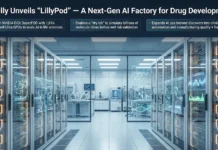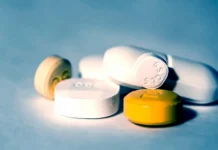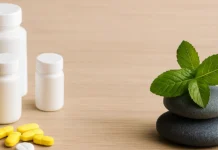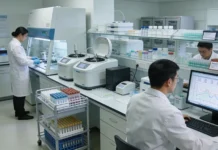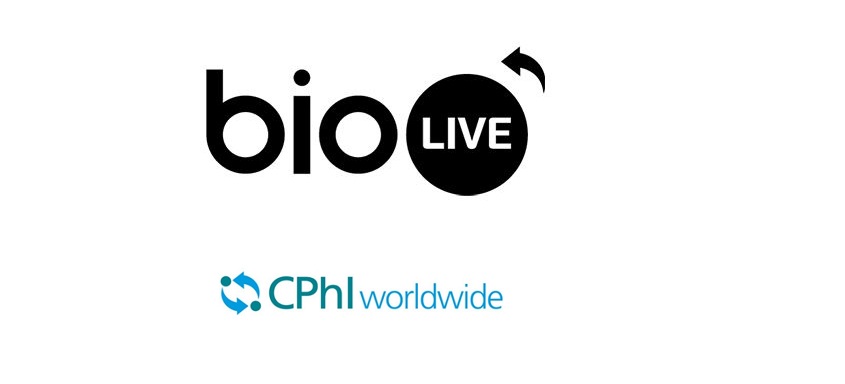Industry experts from bioLIVE – the new UBM biomanufacturing and bioprocessing event taking place next year in Madrid (October 9-11).
Predict that 2018 will usher in a new age of increased integration and collaboration across the large and small molecule supply chain. Additionally, next year will also see a continued rise in the European bioprocessing and biomanufacturing sectors, along with a resurgence in European biotechs.
Experts at UBM have been studying market developments ahead of the new event’s launch, and one of the key factors identified is the relative states of maturity of the supply chains. The small molecule space has nearly 50 years of history behind it, coupled with a highly mature contract services sector, whereas for newer biologicals, such as cell and gene therapies, the potential development and commercialisation challenges that lie ahead are only starting to emerge.
“One of the consistent problems in bio for the last year has been getting the right level of skilled workers, as well as building a global and stable partners base. This is an area that small and large molecule will likely collide in 2018 – particularly as more CDMOs, and pharma companies begin to diversify their capabilities,” commented Rutger Oudejans, Brand Director Pharma at UBM.
Overall, the biologics market in Europe is experiencing fairly robust growth and there is a resurgence of activity in the European bio hubs, but the supply chain will be a key area of focus to ensure that products make it to market quickly and securely. Another consideration is that, at present, the USA and Europe dominate manufacturing, but China and India are widely acknowledged to be fast growing bio markets albeit from a small base. As seen with small molecules 30 years ago, biosimilars development will gradually move East. However, this will happen on an even faster timeline due to the greater sizes of the domestic markets here now – which are far more developed than when the generics industry was evolving.
UBM research amongst the potential supplier base is showing that 2018 will be a critical year for the bio industry. There is a clear duality in the market as the industry tries to incorporate increasing demand for biosimilars (often large mammalian capacity demand), coupled with the unique development challenges of the newer smaller cohort drugs – single-use tech is another major growth area. Collectively, this means there are potentially two distinct types of supply chain developing – and in multiple geographic locations. And that is without considering the differences in upstream and downstream processing.
Next year there is likely to be an increased internationalisation of the market as Asian companies will move to work with more western partners, and in- and out- licensing of newer more efficient technologies will proliferate in order to help lower overall costs.
“In the past few years we have seen the supply chains of bio and small molecule coming together, particularly as you have seen more and more CDMOs transferring their skills into bio. There is a growing issue of availability of resource, and undoubtedly there are learnings and contacts that can be shared, since there is a global shortage of skills and manufacturing. For bioLIVE, this is a significant opportunity. We will need to pull in our global partners from China and India to next year’s event, but also centralise the European and USA bio markets, which are still somewhat disparate. By mirroring what has already been achieved for small molecules we will create a hub greater than the sum of its parts, as we connect across geographies and bring together companies from both the processing and manufacturing supply chain. It’s a very exciting time for the industry, as next year we foresee a more mature supply chain beginning to take hold,” added Oudejans.
In Europe, contract manufacturing organisations (CMOs) are predicted to align their strategies to not only address capacity, but also the greater complexity of products, supplier risk and the adoption of advanced biomanufacturing technologies.
Finally, 2018 – as highlighted by the CPhI Annual Report – could also be the year we see the development of new, bio specific excipients. These new excipients are likely to be developed in conjunction with a bio active and there will be a focus on characterising excipients by surface interaction. However, biosimilars are not predicted to drive down costs of these new excipients for biologics, since biologics will still have superior pharmaceutical equivalence.
About bioLIVE
bioLIVE is a new event with an exhibition and a live content stage, focusing on large molecule Biopharma and more specifically on manufacturing and processing. A unique platform connecting biotechs, big pharma and service providers across the large molecule value chain. bioLIVE runs adjacent to CPhI Worldwide, bringing small and large molecule worlds together, creating a unique platform where both industries can learn from each other, connect and forge partnerships.
For more information visit: www.bio.live
The UBM annual schedule of Pharmaceutical events includes: Pharmapack Europe (7-8 February, 2018 at the Paris Expo, Porte de Versailles – Paris, France); CPhI, P-MEC and Innopack South East Asia (27-29 March, 2018 at the Jakarta International Expo – Jakarta, Indonesia); CPhI, ICSE, P-MEC, BioPh and InnoPack Japan (18-20 April, 2018 at the Big Sight Exhibition Centre – Tokyo, Japan); CPhI, ICSE, FDF and InnoPack North America (24-26 April, 2018 at the Pennsylvania Convention Center – Philadelphia, USA); CPhI and P-MEC China (20 – 22 June, 2018 at SNIEC – Shanghai, China); CPhI Korea (28-30 August 2018, COEX, Seoul, Korea); CPhI Middle East & Africa (3-5 September, 2018 at the ADNEC – Abu Dhabi, United Arab Emirates). BioLIVE (9-11 October, 2018 in Madrid, Spain); CPhI, ICSE, P-MEC, FDF and InnoPack Worldwide (9-11 October, 2018 at the IFEMA, Feria de Madrid – Madrid, Spain); CPhI & P-MEC India (3–6 December 2018 at BEC and BKC Exhibition and Convention Centres – Mumbai, India).
About UBM
UBM is the largest pure-play B2B Events organizer in the world. Our 3,750+ people, based in more than 20 countries, serve more than 50 different sectors. Our deep knowledge and passion for these sectors allow us to create valuable experiences which enable our customers to succeed. Please visit www.ubm.com for the latest news and information about UBM.
For media enquiries, please contact:
Alex Heeley or Alex Allsop
De Facto Communications
T: +44 (0) 203 735 8168
E: a.heeley@defacto.com/ a.allsop@defacto.com


